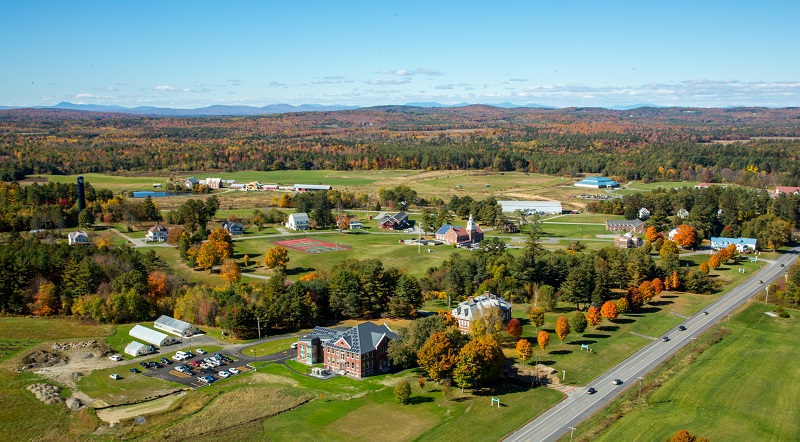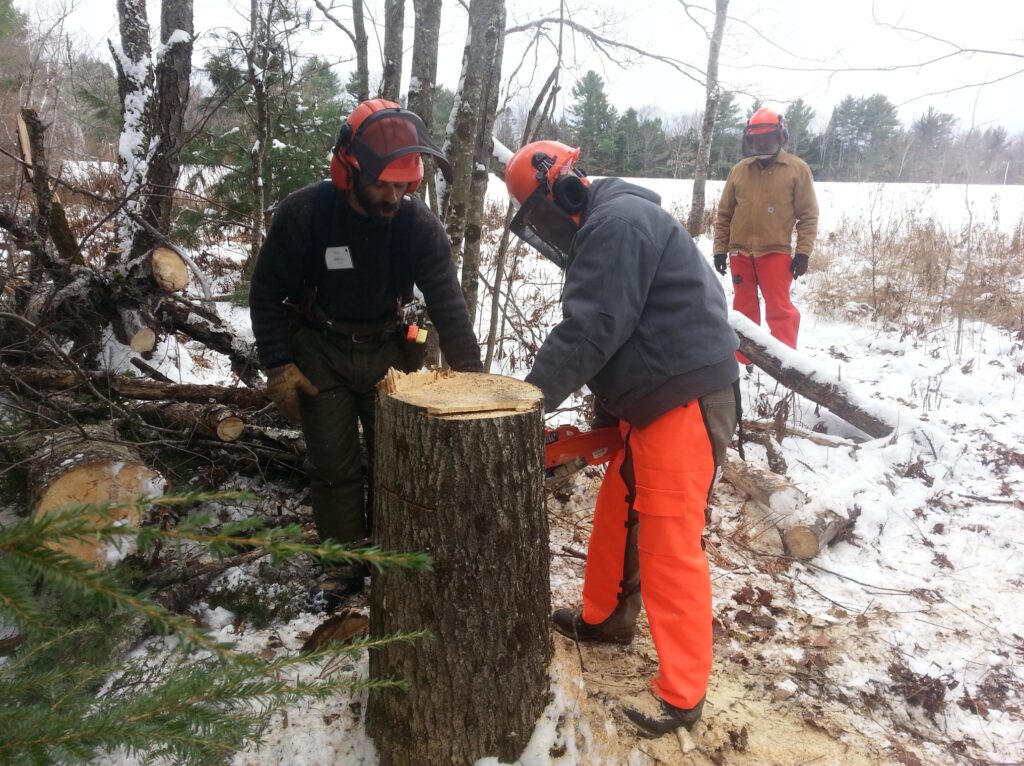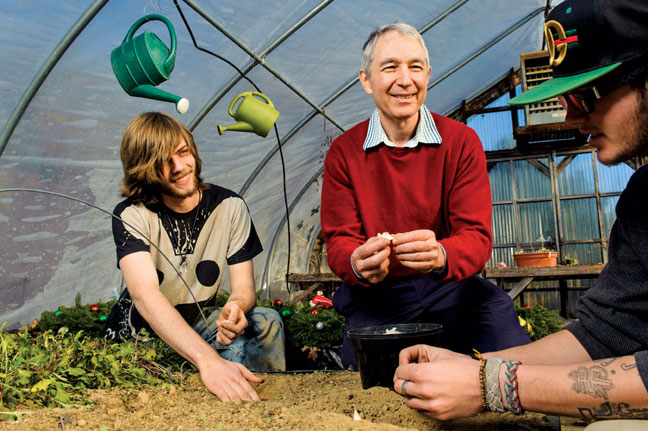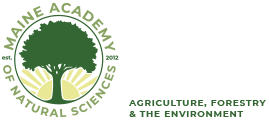The holiday season is a great time to remember what we’re thankful for. For everyone at the Maine Academy of Natural Sciences, it’s a long list.
We’re thankful for our wonderful staff and faculty, and we’re thankful for our diverse student body. We’re thankful for the community that continues to support our mission, and we’re thankful that Good Will-Hinckley shares its bucolic campus with us.

We could go on, but this year we want to celebrate and remember something in particular—a rebirth that happened when the school nearly closed in 2009 and what’s happened since. Back then, financial constraints had pinched the school and the Good Will-Hinckley organization ceased operations.
The closures, thankfully, were short lived.
Glenn Cummings—who would later become the president of the University of Southern Maine—was hired as Good Will-Hinckley’s president and executive director in 2010. He connected with Troy Frost, a former principal of Averill High School at Good Will-Hinckley, and longtime educator and education advocate and expert, Emanuel Pariser. The rest is history.
The Maine Academy of Natural Sciences opened in 2011 as an independent magnet school, and in 2012 was the first school in Maine to receive charter status after legislation signed by then-Governor Paul LePage that allowed for up to 10 charter schools in Maine.
Today, our thriving school offers project-based learning in agriculture, sustainability, forestry, business, alternative energy and the environment on the 700-acre campus along U.S. Route 201. In its 11 years of operation, MeANS has educated hundreds of students who have gone on to post-secondary institutions and successful careers.

The Future is Now
Why are we remembering this rebirth as 2023 nears? Despite strong support for charter schools from the George W. Bush and Barack Obama administrations, the charter school movement is under threat. While charter schools nationwide saw an increase in enrollment during the pandemic, the number of charter schools opening each year has steadily declined over the last few years.
Teachers unions in states like California have led campaigns that demean or criticize charter schools, and a quick Google search will bring up countless links to columns or editorials talking about how they undermine public education or how they are bad for our children.
Regardless of what political party is in power, funding is the biggest challenge facing charter schools in Maine, says Pariser, who continues to support the school as a consultant.
Charter schools like ours receive less funding per student than a traditional public school, and the public schools receive tax money from local governments. MeANS must raise considerable money each year just to make ends meet.
Today, MeANS is led by Head of School Matthew Newberg and Dean of Students Danni Best. The school receives about $2.3 million from the state government. The rest of its money is raised through an annual campaign, By All MeANS, which launches each December and includes sales of holiday wreaths, maple products and farm goods. The school’s annual budget is about $2.9 million.
Financial support—or a lack thereof—is not the only challenge.
As the Maine Department of Education notes, there are teacher shortages in subjects including industrial arts and technology, math, English and special education. MeANS has enough teachers to ensure all students are receiving the required education, but Pariser says ideally there would be a bigger enrollment supported by additional educators.
Currently, MeANS has around 170 students and 17 teachers, meaning there is a 10-to-1 student to teacher ratio.
Another challenge is the continuing push, both in Maine and across the country, to measure students’ success—and, by proxy, the success of teachers and the school—using standardized test scores. That type of assessment doesn’t make sense for MeANS because students are often asked to identify specific trees, fix a transmission or build a hut that can withstand a harsh winter. Those assignments aren’t part of a standardized test.
Crossing the Threshold
Still, as the new year approaches and other holidays, too, we feel confident in what we offer and feel we have a model that other schools can bring to their own campuses.
Take, for instance, our Threshold program for students who have a difficult time functioning in a typical school environment. The program allows students to work from home four days per week and receive a high school diploma, provided they meet MeANS and state requirements. Pariser says the program has a high success rate—about 82 percent of students graduate—and he thinks other schools, including charter schools, could use the Threshold.
Before helping found MeANS, Pariser co-founded the Community School in Camden and has spent more than 36 years fighting to get kids from challenging backgrounds to a better place in life.

Pariser has been working for most of his life to improve outcomes for children in Maine. He earned a degree in philosophical psychology from the University of Chicago and a doctorate in psychology and education from the University of Maine. His thesis was about the importance of student-teacher relationships in student retention and learning with students at risk.
As we end 2022 and look ahead, it is important to know our school’s history, where we’ve been and where we’re going. The ability to weather any storm and persevere through myriad challenges is proof our school can survive and thrive. But we need help.
Our By All MeANS fundraiser kicks off this month, so please stop by our campus to purchase holiday gifts and support our school community. The continued success of our school will take everybody joining together. We are forever grateful to have such a loving community to call upon as we move into another decade of education.
Thank you for everything.



